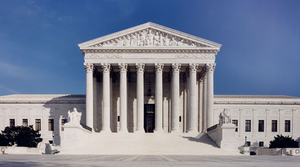America
US Supreme Court Upholds Continued Access to Abortion Pill Mifepristone

June 13 :
The US Supreme Court sided with President Joe Biden's administration in its fight to maintain widespread access to the abortion pill, rejecting a petition by anti-abortion organisations and doctors seeking to limit its availability. Reversing a lower court's decision to roll down US Food and medication Administration moves in 2016 and 2021 that facilitated the prescription and distribution of the medication mifepristone, the justices ruled 9-0 to remove the recognition of a constitutional right to abortion, two years after doing so. Justice Brett Kavanaugh, a conservative, wrote the decision.
With the pill's FDA regulatory approval in the year 2000, about 60% of abortions in the US undergo this procedure.
The plaintiffs did not have the requisite legal standing to prosecute the action, according to the justices. This standing was required to demonstrate that the plaintiffs suffered harm that might be linked to the FDA. The plaintiffs had filed in Texas in 2022.
Fourteen states passed legislation outright prohibiting or severely limiting abortion after the Supreme Court, with a conservative majority of 6-3, reversed its 1973 Roe v. Wade decision, which had legalised the procedure nationwide, in 2022.
In his remarks, Democratic presidential candidate Joe Biden attacked the Republican authorities who are pushing for these restrictions, claiming that their goal is to make abortion illegal across the country and stating that the decision from June 13 "does not change the fact that the fight for reproductive freedom continues." The US election is scheduled for November 5.
The reality is that women lost a basic right two years ago when the Supreme Court reversed Roe v. Wade. The reality that a woman's ability to receive necessary medical treatment is threatened, if not outright unattainable, in some places remains unaffected, Biden emphasised.
The plaintiffs, headed by the Alliance for Hippocratic Medicine, claim in their lawsuit that the FDA should make it more difficult for other doctors to prescribe and for women to get mifepristone, despite the fact that the plaintiffs themselves do not use or dispense the medication (Kavanaugh).
In his opinion, the plaintiff lacks standing to suit under Article III of the Constitution, which establishes the authority of the US government's judicial arm, just because they want to make a drug less available to others, Kavanaugh said.
Since they are already protected by federal law, Kavanaugh did not buy the plaintiffs' claim that the FDA's actions would compel them to perform abortions, thereby violating their consciences.
If the court had sided with the plaintiffs, the FDA's power to regulate medication safety would have been jeopardised.
The regulations that the FDA took in 2016 and 2021 were the focus of the lawsuits. These regulations allowed pharmaceutical abortions up to 10 weeks into the pregnancy, up from seven weeks before, and let women to acquire the pill through the mail without having to visit a clinic in person. An earlier court rejected the suit's claims that the FDA had improperly approved mifepristone.
Democrats, led by Biden, have tried to frame abortion rights as a major issue in the race against Republicans. Biden has stated his intention to keep pushing for the federal government to legalise abortion. Biden brought attention to the fact that rape and incest are not exempt from abortion laws in certain states.
According to Biden, women are facing discrimination in several forms, including exclusion from emergency rooms, having to go to court to demand treatment that their doctor had prescribed, or forced to drive long distances to receive treatment. For practicing medicine as they have been educated to do, doctors and nurses are facing criminal charges and possible life sentences. Additionally, in vitro fertilisation (IVF) and other methods of birth control are under fire.
By the end of June, the Supreme Court is anticipated to make a ruling on the constitutionality of Idaho's stringent abortion ban, which prohibits termination of a pregnancy regardless of whether it is essential to safeguard the health of a pregnant woman confronting a medical emergency. The law was favoured by Republicans. Mifepristone cannot be legally prescribed or dispensed by medical practitioners in the 14 states that have passed laws prohibiting abortion with limited exceptions. Legally obtaining the tablets may require patients in those states to either travel out-of-state or continue taking the risk of getting them online from physicians in other states.



































